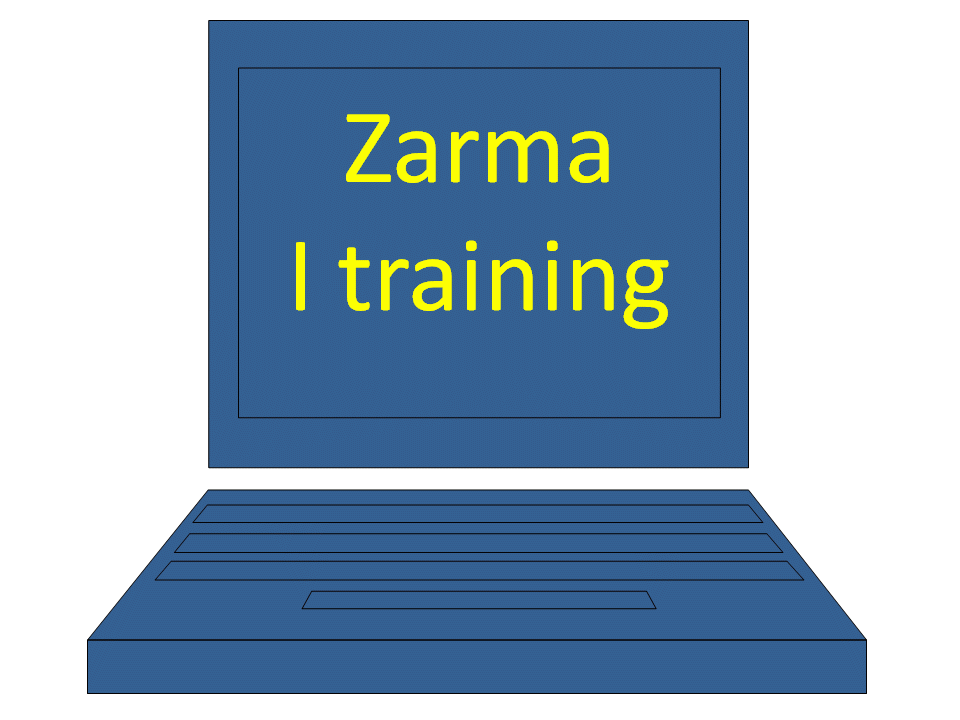Tell the time |
In general the perception of time among Zarma may be very different from ours. 'We have a clock, they have time' expresses this difference in a nutshell. Often time is expressed in relation to the part of the day or the time of the prayers. However, it is possible to use the clock to say the time of the day. In addition, there are way to say now, later, before, etc. (see idiom).

we have the clock |

they have the time |
|
|
| |
Express time in relation to part of the day (without clock) |
Often time is expressed in relation to the part of the day which are most of the time related to the time of the prayers. For greetings related to the time of the day, see Lesson 5.C.
| Zarma |
Prayer* |
English |
| alfazar |
at sunrise |
dawn, sunrise |
| adduha |
9:00 till 10:00 am |
early morning sunrise till 10:00 am |
| weete |
10:00 till 12:00 am |
mid-morning 10:00 till 11:30 am |
| zaari |
|
noon |
| aluula |
2:30 till 3:00 pm |
early afternoon 12:30 am till 4:30 pm |
| wiciri |
4:30 till 5:00 pm |
late after noon to sunset |
| hiire |
|
after sunset till supper time |
| almaari |
8:30 till 9:00 pm |
after dark until bed time |
| ciini |
|
night |
* Formal current prayer times are
different.
|
|
| |
| 'Han fo', a day, shows you the main parts of the day that a distinguished by the Zarma. In total there are nine periods. |
| |

|
Other expressions
- susubay morning, from sunrise to noon (adduha and weete).
- wiciri kambu or wucir kambu is also used for wiciri
- almaari kambu means twilight
- ciini bine and ciini bindi mean might night,
ciini bine is said to be used for the time between 00:00 and 05:00 hours
|
| |
|
Express time using a clock |
Although time is normally expressed in relation to the part of the day, there is a way to express time using a clock. There is a story that the origin of the Zarma word for hour guuru is derived from the iron (guuru) bells that rang, often old rims, to indicate the time to start or finish work in the days of forced labour. Therefore it is the idea of the metal sound that links hour to iron by guuru signifying both hour and iron.
To ask and to tell time is very simple as soon as you can count in Zarma. |
| Zarma |
English |
| Guuru watifo no? |
What time is it? |
| Guuru iyye. |
Seven o'clock. |
| Guuru hinka kaŋ sinda minti ahakku. |
Eight minutes before two o'clock |
|
|
| |
| The system is depicted below |
The whole hours |
 |
 |
 |
 |
| guuru fo |
guuru iddu |
guuru yegga |
zaari (noon) or ciini bindi; ciini bine (midnight) |
Half and quarter of the hours |
 |
 |
 |
 |
| guuru hinza |
guuru hinza nda minti way cindi gu |
guuru hinza nda jere |
guuru taaci kaŋ sinda minti way cindi gu |
Before the hour: kaŋ sinda |
After the hour: nda |
 |
 |
 |
 |
| guuru ahakku kaŋ sinda minti waranka |
guuru ahakku kaŋ sinda minti way |
guuru ahakku nda minti way |
guuru ahakku nda minti waranka |
|
| |
|
Time idiom, general |
A list of expressions about relative time.
|
| English |
Zarma |
Now |
|
| now |
sohõ |
| now directly |
sohõ-sohõ |
After |
|
| after dinner |
hawrey banda |
Before |
|
| before Abdou arrived, I was studying |
za Abdou mana kaa, ay go go caw |
Future |
|
| I will see you later on |
ay ga di ni nda tonton |
| in a little while we will eat |
a tonton kayna iri ga ŋwari |
Past |
|
| it´s been a little while since he came out |
a gay kayna, a fatta |
| just a bit ago I told him |
jinjina ay ci a se |
| formerly it was here he worked |
doŋ ne no a goy |
| formerly, I couldn't speak Zarma |
watodin, ay si ma Zarma cine |
| in the past, Arlit was a small town |
watodin, Arlit ya kwaara kayna no |
| in those days, Zinder was the capital of Niger |
watodin, Niizeer laabu kapitalo go Zinder |
| a long time ago he said he would come |
za watifo a ne nga ga ga kaa |
| we have know him, it's been a long time |
iri n´a bay, a gay |
Already / Yet |
|
| you have already seen it |
ni jin ga di a |
| you haven't told me yet |
ni mana ci ay se jina |
this time (at the identical moment) |
|
| about this time |
danga sohõ waato |
| this time tomorrow |
suba yacine |
| or |
suba mansaŋ cine |
| this time Saturday |
asipti mansaŋ cine |
|
| |
|
Time idiom, part of day |
| The name of the part of the day is used in idiomatic expressions. For of all with greetings, but also to express that someone spent that part of the day doing something and |
Greetings |
| Term |
Greeting |
Used during |
| kaani |
Ni kaani baani? |
alfazar and adduha |
| weete |
Ni weete baani? |
weete |
| foy |
Ni foy baani? |
zaari and aluula |
| wiciri |
Ni wiciri baani? |
wiciri |
| hiire |
Ni hiire baani? |
hiire |
| almaari |
Ni almaari baani? |
almaari |
|
To spent a part of the day or begin at a part of the day |
| Zarma |
English |
hanna ka ...
ay izo hanna ka hen |
to spent the night
my child cried all the night long |
weete ka ...
i weete ka caw |
to spent the forenoon
they spent the morning reading
(or studying) |
foy ka ...
i foy ka koy |
to spent the whole day
they work all day long |
biya ka ..
iri ma biya ka koy naaruyaŋ |
to begin early morning
let's start our trip early in the morning |
wayma ka ...
i wayma ka tun |
to begin late afternoon
they set out late afternoon |
|
Other expressions |
| Zarma |
English |
| a kaa zaaro ra |
he came in the day time |
| a ga dira zaari |
he will travel by day |
| a kaa da wayno |
he came in the heat of the sun |
|
| |
|
Current prayer times and names in Arab |
| Formal current prayer times may
differ (see
here) |
| nr |
Arab name |
English |
time |
| 1 |
Fajr |
morning |
between the very beginning of
dawn and sunrise |
| 2 |
Shurooq |
sunrise |
the time of sunrise, the time
when the upper limb of the sun
just starts to appear above the
horizon. This marks the end time
for Fajr (morning) prayer. |
| 3 |
Dhuhr |
noon |
Between the
declining of the sun and Asr
(when the shadow of something is
twice its own length) |
| 4 |
Asr |
late afternoon |
Immediately
after the last time limit of
Dhuhr until (just before) the
sunset |
| 5 |
Maghrib |
evening |
Soon after the
sunset
until the disappearance of the
twilight |
| 6 |
Isha |
night |
After the
disappearance of the twilight
until midnight. |
|
| |
|
| |



















